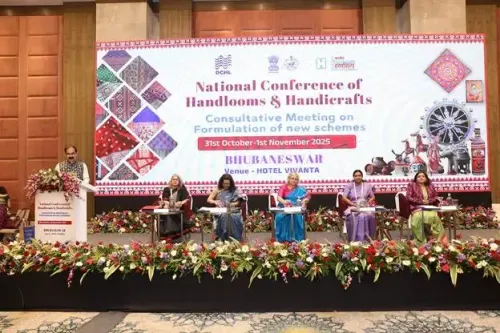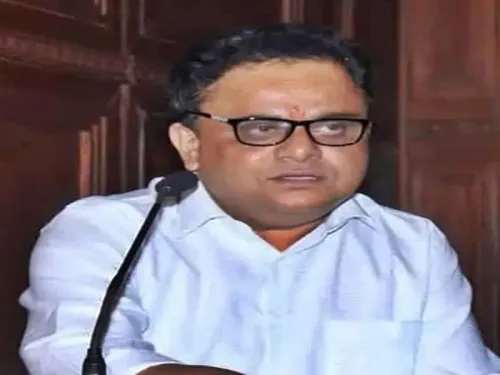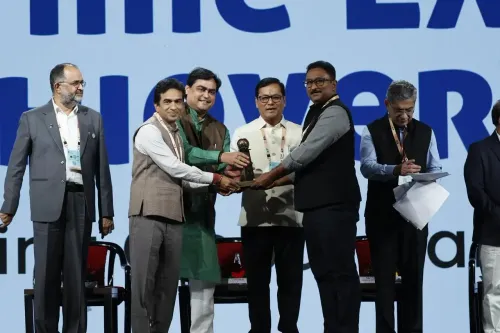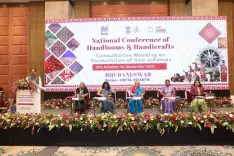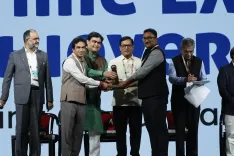How is Gujarat Addressing AMR Challenges Amid Rising Milk Production?
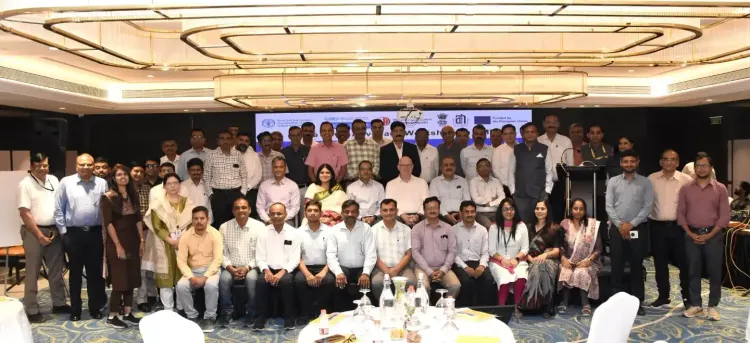
Synopsis
Key Takeaways
- Gujarat produced 18.31 million metric tonnes of milk in 2024.
- The state accounts for 7.65% of India's total milk production.
- Overuse of antibiotics in livestock is a key driver of AMR.
- A comprehensive State Action Plan on AMR is in place.
- Farmers are trained in biosecurity to reduce reliance on antibiotics.
Gandhinagar, June 3 (NationPress) A state-level workshop focused on the escalating challenge of Antimicrobial Resistance (AMR) in the livestock sector took place in Gandhinagar, co-hosted by the Food and Agriculture Organisation (FAO) and the Animal Husbandry Department.
The workshop gathered essential stakeholders under the EU Tripartite AMR Project, titled "Working Together to Combat Antimicrobial Resistance."
Experts, state officials, and representatives from the National Dairy Development Board (NDDB) engaged in discussions about strategies to address AMR in the animal husbandry industry.
During the event, Sandeep Kumar, Secretary of the Animal Husbandry Department, highlighted that the department has initiated numerous studies and research projects to monitor antibiotic usage and resistance levels in livestock.
These initiatives are aiding the state in formulating effective control measures.
Kumar cautioned that the overuse of antibiotics, not just for treatment but also for preventive measures and as growth enhancers, is a leading contributor to AMR in animals. This situation poses significant risks to human health via the food chain and the environment.
Pointing out Gujarat’s success in the dairy sector, Kumar mentioned that the state achieved an impressive production of 18.31 million metric tonnes of milk in 2024, which accounts for 7.65 percent of India's overall milk production.
“This achievement is thanks to the commitment of over 36 lakh dairy farmers,” he stated.
The per capita milk availability in Gujarat has surged from 291 grams/day in 2000–01 to 700 grams/day today, greatly improving nutritional security.
Gujarat stands out as one of the few Indian states to have developed and executed a comprehensive State Action Plan on AMR in alignment with the National Action Plan initiated in 2017.
The plan encompasses the monitoring of antimicrobial use through a laboratory and field reporting network, regulation of veterinary prescriptions, and awareness initiatives for veterinarians, para-vets, and dairy farmers.
Farmers are also receiving training in biosecurity and infection prevention to decrease reliance on antibiotics and the overall disease burden in livestock.
Dr. Falguni Thakkar, Director of the Animal Husbandry Department, labeled AMR as a "major global health challenge" and underscored the necessity for coordinated action through the ‘One Health’ framework, which integrates efforts across human, animal, and environmental health.
“This workshop is a crucial step towards the effective implementation of AMR strategies in Gujarat and serves as a model for other states,” Dr. Thakkar asserted.

